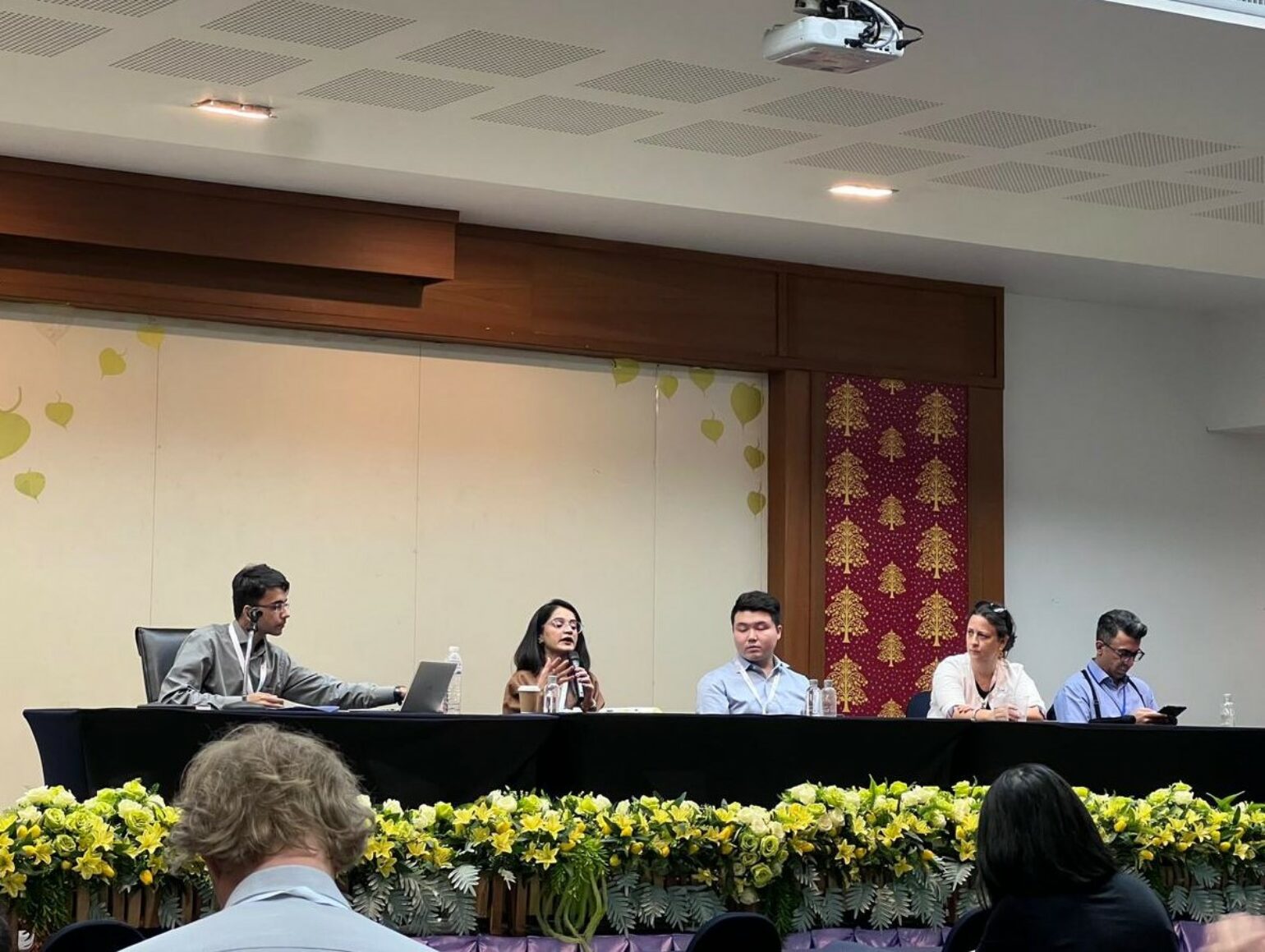(Chiang Mai, Thailand) — Media Matters for Democracy (MMfD) hosted an insightful session, ‘Twitter: Navigating Accountability & Transparency Post Musk Takeover’, at the Digital Rights Asia-Pacific Assembly (DRAPAC23) on May 22, 2023. The session critically examined the far-reaching implications of billionaire Elon Musk’s takeover of Twitter, bringing together diverse stakeholders from communities directly impacted by the high-profile acquisition of the influential social media platform.
Led by MMfD’s Usman Shahid, the session featured four distinguished names from the fields of digital rights, tech accountability, media development, and advocacy. The speakers included Hija Kamran, editor at GenderIT at the Association for Progressive Communications (APC); Daron Tan, legal adviser at the International Commission of Jurists (ICJ); Victoire Rio, strategic adviser at the Myanmar Internet Project (MIP); and Asad Baig, co-founder and director at MMfD.
The dialogue particularly examined the rise in hate speech on Twitter following Musk’s takeover, and what, in general, makes social media platforms like Twitter relatively more vulnerable to violent content. It explored the freedom of expression on Twitter against Musk’s arbitrary free speech ideals, impacts of massive cuts in workforce on the accountability infrastructure, discontinuation of transparency reports, Musk’s claims of declining hate speech on Twitter under his management with research indicating otherwise, and the potential impact of increasing monetization of various features on the platform on oppressed voices and marginalised communities.
Kamran spoke at length regarding the consequences of Twitter management playing into the hands of authoritarian governments by complying with content takedown and personal information requests. Tan, on the other hand, elucidated how the acquisition has impacted women and marginalised communities by allowing hate speech and harassment to run rampant on the platform.
The discussion also highlighted the recently introduced Twitter labels (‘Government-funded/Public-funded Media’) for news organisations and their subsequent withdrawal from the platform in protest. It touched on the suitability of Twitter for media organisations and journalism in future, especially in a country like Pakistan where Twitter has been an essential component of journalism for both established media houses and emerging independent ventures.
Baig maintained that Twitter has turned only worse following Musk’s acquisition; whereas, Rio, while pointing out how the takeover has set back civil society’s years of progress in shaping policies of Big Tech platforms, expressed concern regarding Musk’s radical changes and the lack of accountability thereof.
The discussion, however, also took an optimistic turn highlighting the consistent efforts of activists and the civil society at large, and ended on the positive note that as long as there are solidarity networks and platforms like the DRAPAC Assembly, there will always be hope that digital spaces can be safer, accessible and inclusive for all.

